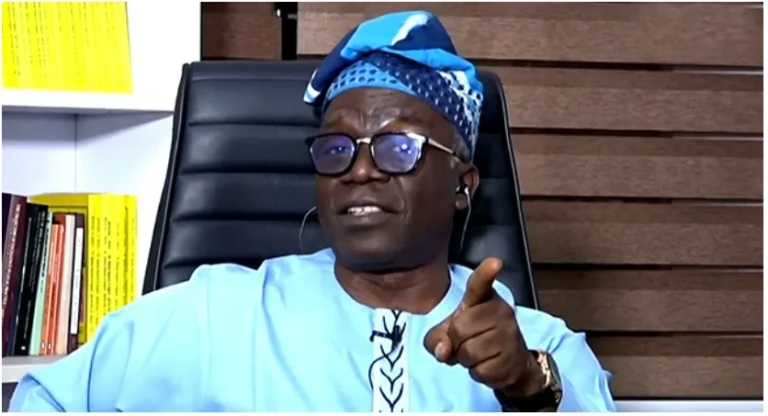Femi Falana Condemns Proposed Salary Increase for Nigerian Politicians Amid Economic Hardship
Prominent human rights advocate and Senior Advocate of Nigeria (SAN), Femi Falana, has vehemently opposed the recent proposal to raise the remuneration of political office holders. He described the move as profoundly insensitive, especially considering Nigeria’s ongoing economic challenges.
Critique of RMAFC’s Position on Political Salaries
During an interview on Channels Television’s morning show, Sunrise Daily, Falana criticized the Revenue Mobilisation Allocation and Fiscal Commission (RMAFC) for disregarding the struggles faced by the average Nigerian citizen. He emphasized that the commission appears detached from the harsh realities confronting millions nationwide.
Highlighting data from the National Bureau of Statistics (NBS), Falana pointed out that over 133 million Nigerians currently live under multidimensional poverty-a figure that underscores the severity of the country’s socio-economic crisis. Against this backdrop, he questioned the justification for prioritizing salary increments for politicians.
“Proposing pay raises for political leaders at this juncture is not only out of touch but also unjust to the vast majority enduring economic hardship,” Falana asserted.
RMAFC’s Justification and the Controversy Surrounding Political Pay
On August 18, 2025, RMAFC Chairman Mohammed Shehu revealed at a press conference in Abuja that the salaries of political, judicial, and legislative officials have remained stagnant since 2008. Currently, the President earns ₦1.5 million monthly, while ministers receive less than ₦1 million. Shehu argued that these figures no longer reflect the scope and demands of their responsibilities, especially when compared to agency heads who earn considerably higher wages.
Despite this rationale, the Nigeria Labour Congress (NLC) has publicly opposed the proposed salary adjustments. The NLC contends that politicians already benefit from numerous undisclosed allowances and perks, exacerbating income inequality in the country.
Clarifications on Salary Reviews and Revenue Sharing Reforms
Shehu clarified that the proposed salary review excludes civil servants. Additionally, the commission has initiated a reassessment of Nigeria’s revenue-sharing formula, which has remained unchanged since 1992. Presently, the federal government receives 52.68% of national revenue, states get 26.72%, and local governments are allocated 20.60%.
Previous efforts to modify this distribution have been unsuccessful due to political opposition. However, Shehu emphasized that the current review aims to better align revenue allocation with Nigeria’s evolving socio-economic landscape and to reduce excessive reliance on federal funds.
Contextualizing the Debate: Economic Realities and Governance
With Nigeria’s inflation rate hovering around 22% as of early 2025 and unemployment exceeding 33%, many citizens face daily financial struggles. In this context, the debate over political salaries has sparked widespread public discourse. Critics argue that increasing politicians’ pay without addressing systemic poverty and governance inefficiencies risks deepening social divides.
Conversely, proponents of the pay review maintain that competitive remuneration is essential to attract and retain competent leaders capable of steering the nation toward economic recovery.


















0 Comments